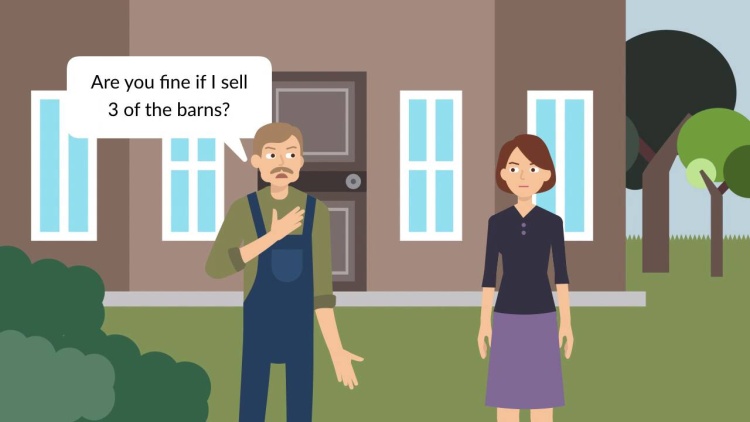Buffaloe v. Hart
North Carolina Court of Appeals
441 S.E.2d 172 (1994)
- Written by Sarah Larkin, JD
Facts
Buffaloe (plaintiff) was a tobacco farmer who rented tobacco and barns from the Harts (defendants) for use in his farming. In October 1988, while Buffaloe was renting the barns, Buffaloe and the Harts began negotiating the sale of the barns. Buffaloe orally offered to pay $20,000 in annual installments of $5,000, and the Harts orally accepted. The barns were not removed from the property because Buffaloe had agreed to farm the Harts’ land in 1989. When Buffaloe was unable to obtain insurance coverage for the barns for 1989, the Harts agreed to obtain it if Buffaloe would reimburse them, which he did. At some point after entering into the agreement with the Harts, Buffaloe had repair work done on the barns, telling the repairman at that time that he owned the barns. Buffaloe decided to sell the barns in 1989 and placed an ad in the newspaper. He entered into agreements with three separate purchasers and received deposits from all of them. Buffaloe had also spoken to an auctioneer about selling the barns prior to selling them directly himself. On October 22 or 23 of 1989, Buffaloe delivered a check for $5,000 to Mrs. Hart that Buffaloe argued was for payment on the barns. The Harts argued that the check was nothing more than a rental check. The next night, Mrs. Hart called Buffaloe and informed him that she had sold the barns to someone else. Buffaloe received a letter postmarked October 26 containing the check, which was torn up. The Harts had sold the barns to the same people Buffaloe had dealt with.
Rule of Law
Issue
Holding and Reasoning (Greene, J.)
What to do next…
Here's why 907,000 law students have relied on our case briefs:
- Written by law professors and practitioners, not other law students. 47,100 briefs, keyed to 996 casebooks. Top-notch customer support.
- The right amount of information, includes the facts, issues, rule of law, holding and reasoning, and any concurrences and dissents.
- Access in your classes, works on your mobile and tablet. Massive library of related video lessons and high quality multiple-choice questions.
- Easy to use, uniform format for every case brief. Written in plain English, not in legalese. Our briefs summarize and simplify; they don’t just repeat the court’s language.





